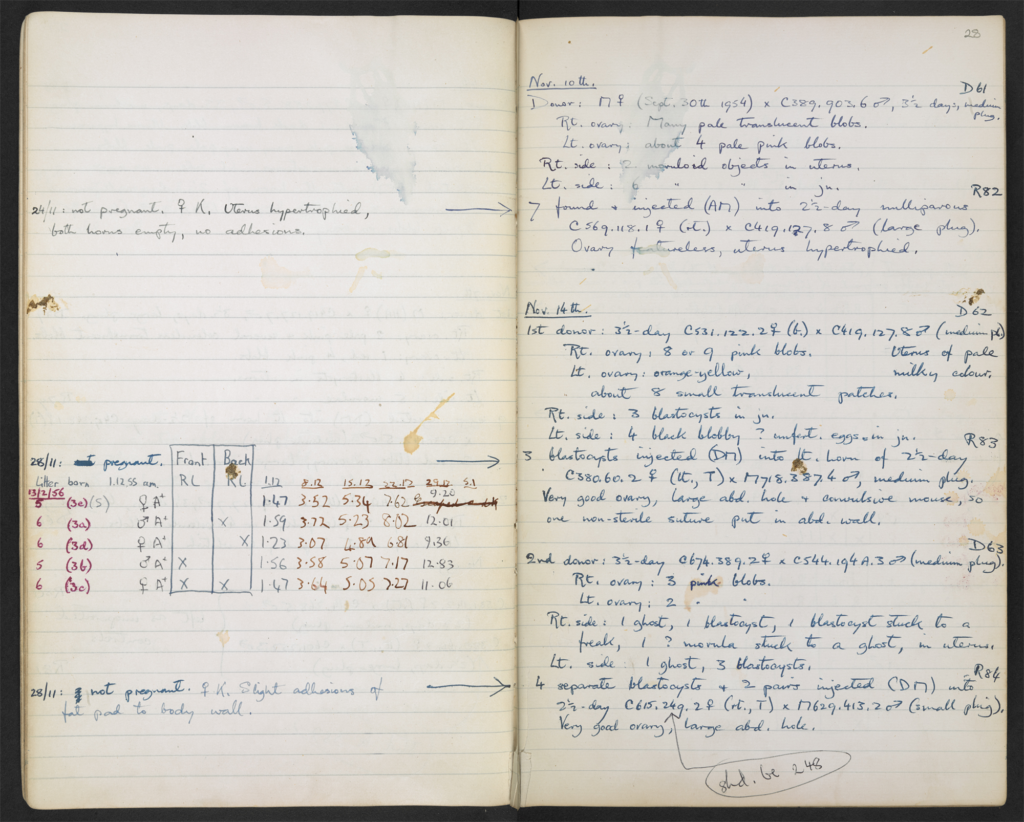Why use a lab book?
Growing up, I loved watching the Nickelodeon Show, “The Adventures of Jimmy Neutron, Boy Genius”, which follows the adventures of Jimmy, his robot dog and his friends, Carl and Sheen. His adventures involved mind-boggling inventions coming to birth in Jimmy’s futuristic laboratory and how mishaps in his creations were overcome. The personalities of the three friends remind me of the three commonly observable groups of people in a laboratory. The “Jimmys” who carry most of the experiment’s workload could be seen running about with a pencil stuck behind their ear and a massive notebook full of numbers and notations. The “Carls” are obedient and loyal to their lab mates. They blindly do what they are told to but often look clueless as to what is going on. Their notebooks may look almost brand new with a few notes here and there. Lastly, we have the “Sheens” who are often seen running to the paper towel dispenser in a frenzy to jot down the results of their experiment. Which group do you belong to?
Research is all about investigating hard-to-answer questions using the scientific method of problem-solving. This involves observation, hypothesis generation, controlled experimentation, and critical evaluation of data to derive useful information. Yes, the human mind is superior and capable of delineating complex concepts into logical facts. However, the scientific method of problem-solving will not fully achieve its purpose unless we take clear, concise, and consistent notes. It does not matter if you have the highest IQ in the World with a photographic memory of the highest precision. It is inescapable to make mistakes without our knowledge; when you have a visible recollection of your work, it is easier and faster to troubleshoot effective solutions in such instances.
Advantages of a detailed lab book.
- A record of all reagents used and their catalogue numbers will help future purchases to occur smoothly and error-free.
- Daily logs help track progress and estimate the timeframe of the research accurately.
- Recording methods in detail help optimization of procedures.
- Helps identify unsolved problems and shortcomings of experimental design.
- Prevents the repetition of errors.
- Staying organized minimises workload towards the end of the research and saves time to explore more complex angles.
- Facilitates seamless project continuity and prevents roadblocks in research.
- Deters research misconduct.
- In instances that require patenting, a good lab record acts as evidence for “first to invent”.
- Aids in manuscript writing.
The spectacular outcome of practicing good note-taking is evident from Gregor Mendel’s work which has now laid the foundation for genetics. Mendel studied seven characteristic traits of pea plants such as height, seed shape and colour, and flower position for seven years. During the pre-digital age, he kept track of all his observations and research in consistent notes. This allowed him to publish many treasured works in multiple fields such as physics, biology and meteorology, during his time. Furthermore, the importance of consistent note-taking is reiterated by the fact that several notebooks of well-known scientists have become library treasures. Codex Arundel stored in the British Library, a collection of handwritten lab notes of Leonardo Da Vinci and Anne McLaren’s lab book on embryo transfer on mice displayed in the British Treasures Gallery are some of such examples.


The idea of a lab book has evolved over time. When research was the passion of a selected few, the lab book was a diary of their daily thoughts and activities and a record of their intellectual journey. However, research today is mainstream and a commercial venture, making good record keeping mandatory. For a long time lab books were part journals, part scrapbooks, along with whatever else the researcher considered important enough to make a note of. Later, lab books were printed with carbon copy pages to make duplicate records that could be shared with an advisor: the expectation was to have more detailed notes of reagents used and methods followed so that the experiment was easily replicable by another. Over the last few years, electronic lab books have gained popularity because of the ease of access and shareability from anywhere in the world.
Quality lab records are on the decline due to the standardization of protocols that are available in off-the-shelf kits. This allows for minor changes and improvements made in the laboratory to be forgotten or ignored reducing the replicability of the obtained results. Furthermore, many rely on a snapped picture for future results interpretation rather than recording real-time data. This paves way for a high rate of human error and interpretation of false positives and negatives. Good note-taking and record-keeping may not come naturally. Frequently, researchers get caught up in juggling multiple experiments and run out of time and steam to record daily lab activities. However, laboratory work becomes meaningless when the results interpreted do not have sustained evidence. I have struggled for years trying to balance research and record keeping. Good record keeping is definitely an acquired skill and requires discipline and routine.
Many record-keeping styles of laboratory notebooks have emerged today. Your preferred choice of lab book should rely on consistency, easy understandability and thorough data organisation. The principle that helped me maintain discipline while maintaining my lab book was “tomorrow may not come”. Often, the beginning of slacking off and incomplete lab books starts with procrastination. No matter how long of a day you had, take that extra ten minutes off your sleep today to log your laboratory proceedings so that you’d save yourself from a month of sleepless nights. In the next part of the series, we will discuss smart record-keeping styles and tips that may help you work efficiently in the laboratory and progress with excellence in your research.
Author: Sithumini Fonseka


